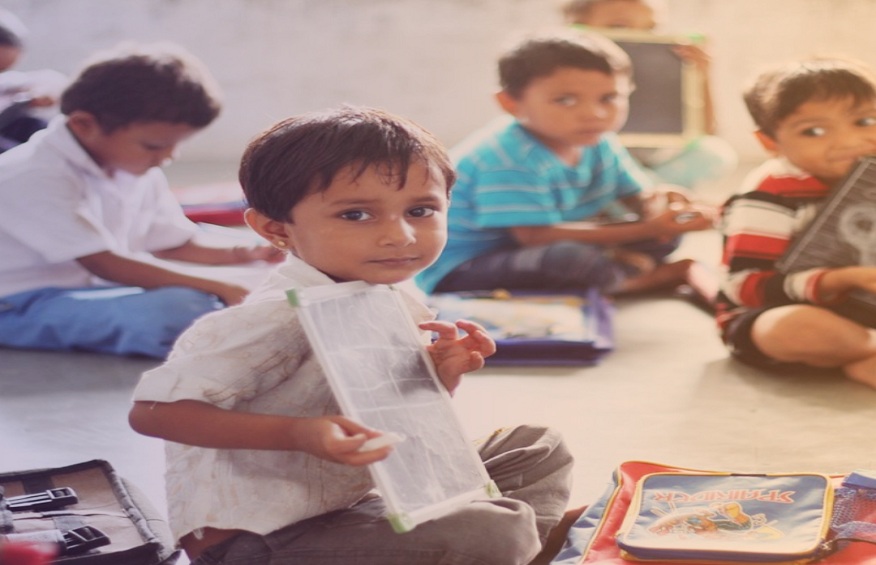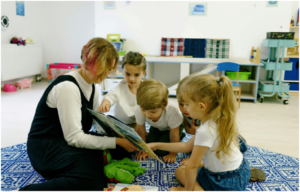How NGOs are transforming the lives of poor children in Education

In India, the pressing reality faced by 29.6 million orphaned and abandoned children, as reported by UNICEF, underscores the dire need for educational support. This vast number of young individuals often encounter barriers to education, grappling with financial limitations to education, societal stigma, and the absence of parental guidance for right education which collectively hinder their academic education and personal growth.
India is positioned fourth globally for its high number of primary school aged children. Yet, it confronts a substantial dropout rate in education, significantly affecting girls and contributing to the gender disparity in literacy rates. According to the 2011 Census, while the average literacy rate of education in India is at 74.04%, there exists a notable gap between male literacy at 82.14% and female literacy at a lower 65.46%. This discrepancy highlights the challenges faced by specific groups of children in India for education, who are disproportionately deprived of educational opportunities due to socioeconomic, cultural, and geographical factors.
NGO’s are Helping the Nation
Addressing these challenges in education, (Non-Governmental Organizations) NGO are helping the Nation across India emerged as pivotal forces in bridging the educational divide. These NGOs are instrumental in providing accessible education and tailored support to meet the unique needs of orphaned and abandoned children, ensuring no child is left behind on the path of standard education.
Here’s an expanded view of NGO’s how at grassroot level engaging with communities, they are committed to providing equal learning opportunities through their flagship “Accessible Education” program. Their aim is to deliver high quality education that encompasses both traditional and innovative learning methodologies, ensuring every child they reach can achieve their full potential.
- Access to Education: NGOs like All the Children, a Tamil Nadu based NGO in Chennai have established Free Evening Tuition & Self Development Centers dedicated to serving orphaned and abandoned children, offering them free, quality education and removing financial hurdles to ensure comprehensive learning opportunities.
- Scholarship Programs: Acknowledging the potential within these children and the economic obstacles they face, numerous NGOs along with All the Children provide scholarships covering educational expenses such as school fees, textbooks, and uniforms, facilitating uninterrupted education.
- Holistic Development: Beyond academics, NGOs emphasize the all-round development of children, incorporating extracurricular activities, life skills training, and psychological support to foster resilience and emotional wellbeing.
- Nutritional Support: Recognizing the critical link between nutrition and cognitive function, some NGOs ensure children receive nutritious meals and regular health checkups, essential for maintaining physical health and academic readiness.
- Vocational Training: To prepare older children for the workforce, NGOs offer vocational training and career counseling, equipping them with marketable skills and empowering them to secure a stable and self-reliant future.
NGO Educational Efforts
In their caring community, All the Children, a Tamil Nadu based NGO in Chennai that helps around 850 to 900 children by giving them topnotch education and lessons in important life skills they need to grow fully. Their efforts go beyond just teaching, they’re preparing these kids with everything they need to tackle the challenges life throws at them, setting them up for a successful future. With their committed support, every child gets the individual care and encouragement they need to shine.
Their sponsorship programs are highly effective in making a significant impact on the lives of children in need. By providing comprehensive support that covers basic needs, education, and medical care, these programs ensure that children have everything necessary for their growth and development. The education sponsorship specifically targets improving access to quality schooling, learning materials, and personal development opportunities, directly contributing to the child’s ability to succeed academically and personally. Additionally, our initiatives to provide nutritious meals support the physical wellbeing of these children, enhancing their ability to learn and thrive. Through these well-rounded sponsorship opportunities, we’re able to not only meet the immediate needs of children but also invest in their future, ensuring they have the foundation to build a brighter, more stable life.
How You Can Sponsor a Child’s Education in India:
BE A PARENT PLAN:
Embrace the opportunity to significantly impact a child’s life through our “Be a Parent” plan. This comprehensive approach addresses every aspect of a child’s growth, including nutrition, education, and healthcare.
Costs:
Annually: Rs. 1,56,000
Monthly: Rs. 13,000
Daily: Rs. 433.33
SPONSOR A CHILD’S EDUCATION PLAN:
Support a child’s educational journey by sponsoring their schooling, providing them with access to quality education, learning materials, and personal development activities.
Costs:
Yearly fees range from Rs. 6000 to Rs. 22,000, based on your contribution level.
MAKE THEM FEEL SPECIAL ON OCASSIONS PLAN:
Ensure children enjoy nutritious and delicious meals daily, with the option to provide special meals for celebrations or as a gesture of extra care.
Costs:
Normal meals: Rs. 6500
Special meals: Customizable based on your preferences
Your involvement in any of these plans not only aids in a child’s immediate welfare but also lays the groundwork for their future success, contributing to economic growth. Education equips children with the knowledge and skills necessary for productive employment, fostering economic development and lifting communities out of poverty. By supporting a child’s education, you are investing in a brighter future for them and for society as a whole.




